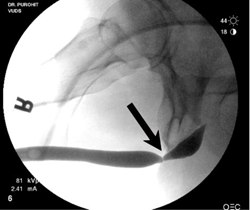Stricture is an extremely common condition that most often affects women. Urethral congestion is characterized by narrowing of the urethral opening. This is usually caused by an infection of the scar tissue. Scar tissue can be caused by a variety of factors.
Very simply, strictures are formed when the urethra of the ureter is blocked. This is usually caused by an overgrowth of prostate adenocarcinoma that forms on the prostate gland. The condition can also be caused by an infection or blockage of the urinary tract. The blockage can be caused by many factors, such as stones or tumors.
In addition, strictures can form due to other urinary tract infections, such as bladder or kidney infections. It can also be caused by trauma to the ureters, trauma to the urethra, tumor of the urinary tract, pelviectasis adalah, etc.
Strictures are usually uncomfortable and can also cause pelvic pain. They can also cause pain when urinating or performing other functions of the bladder or bowel.
Strictures can have different symptoms. Some patients may experience pelvic pain during intercourse, and some may feel pain during bowel movements. Other symptoms include itching, burning, fever, and increased urine pressure. In rare cases, the patient may also experience bladder or bowel incontinence or blood in the urine.
There are many treatment options for strictures. For example, antibiotics are often used to treat this condition. However, these antibiotics can also weaken your immune system. If you are prone to kidney or bladder infections, it is best to consult your doctor for proper treatment.
To prevent the development of this disease, you need to live a healthy lifestyle and avoid taking any medications that can weaken your immune system. You should also drink plenty of water to flush out toxins and eliminate them from your body.
It is important for you to talk to your doctor about the possible causes of strictures. He can prescribe a course of action to eliminate this condition. It is also important that you ask your doctor about natural therapies, such as the ones they recommend.
As mentioned earlier, it is very important to understand what may be causing your strictures and to treat the problem. Your doctor will do their best to explain the complications associated with your case.

Prostate cancer is also a very common problem that can lead to the development of a stricture
Prostate cancer and other forms of cancer also affect your prostate gland. Hence, you need to check with your physician about possible prostate cancer symptoms that may indicate that you have prostate cancer.
Diabetes and heart problems can also be very dangerous and may lead to the development of strictures. You can consult your physician if you feel any symptoms of these medical conditions. You also need to make sure that you do not smoke because smoking can increase the risk of developing strictures.
Infection is another reason why you might have a stricture. If you notice a change in your bladder or bowel habits, this may be a sign that you are suffering from a urinary tract infection.
Strictures may also be a sign that you have kidney or bladder problems. Your physician may prescribe medications to treat your condition.
A urinary tract infection can lead to the formation of a tight and thickened blood clot in the urine stream. The clot forms around the urethra and blocks it. If left untreated, this can cause the obstruction to become larger and more difficult to pass through your body.
This type of blockage will then lead to the development of a very large amounts of urine. This is often accompanied by pain during urination.
If you are unsure if you need a medical treatment, it is best to visit your physician for more information. Even though your condition does not seem that serious, you should still go to the doctor for further evaluation. for your safety and your overall health.